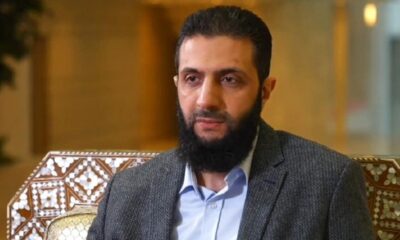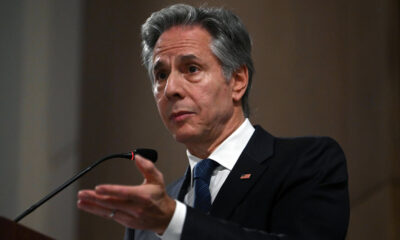Latest News
UN says leaving Afghanistan would be ‘heartbreaking’
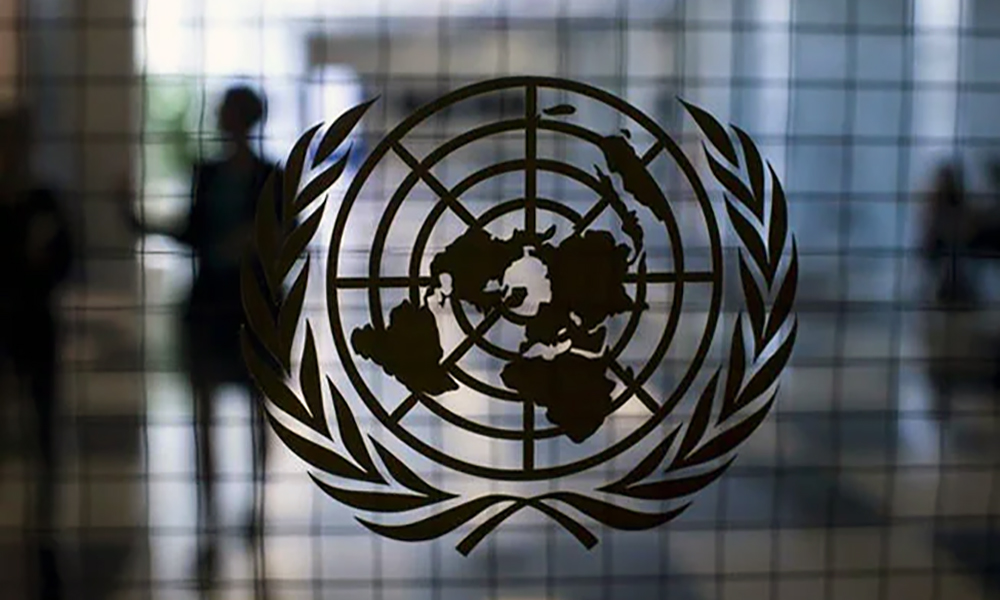
The United Nations is ready to take the “heartbreaking” decision to pull out of Afghanistan in May if it can’t persuade the Taliban to let local women work for the organization, the head of the U.N. Development Program said.
U.N. officials are negotiating with the Afghan government in the hope that it will make exceptions to an edict this month barring local women from U.N. work, UNDP Administrator Achim Steiner told The Associated Press.
“It is fair to say that where we are right now is the entire United Nations system having to take a step back and reevaluating its ability to operate there,” Steiner said. “But it’s not about negotiating fundamental principles, human rights.”
The UNDP said Tuesday that it “reaffirms its long-standing commitment to stay and deliver for the people of Afghanistan.” Secretary-General António Guterres’ spokesman, Stéphane Dujarric, said that the United Nations continues “to push back on this counterproductive, to say the least, edict by the authorities.”
The IEA have allowed Afghan women to engage in some work, Steiner said, and a U.N. report released Tuesday shows that the country desperately needs more women working, with its economy flailing.
The IEA takeover has been accompanied by some very modest signs of economic recovery. There has been some increase in exports, some exchange rate stabilization and less inflation. But gross domestic product, the sum of all goods and services produced within Afghanistan’s borders, is expected to be outstripped by population growth, meaning that per capita income will decline from $359 in 2022 to $345 in 2024, the report says.
Some of those economic problems are due to IEA policies keeping most women out of the workplace, Steiner said. Those economic problems mean more need in the country, but the U.N. has decided that human rights are non-negotiable and it will reduce its presence in May if the IEA does not relent.
“I think there is no other way of putting it than heartbreaking,” Steiner said in Monday’s interview. “I mean, if I were to imagine the U.N. family not being in Afghanistan today, I have before me these images of millions of young girls, young boys, fathers, mothers, who essentially will not have enough to eat.”
Latest News
There are many differences between Syria and IEA: Ahmad al-Sharaa
Sharaa denied that he wanted to turn Syria into a version of Afghanistan.

There are many differences between Syria and the Islamic Emirate of Afghanistan (IEA), Syria's de facto leader, Ahmad al-Sharaa, has said.
In an interview with the BBC in Damascus, Sharaa denied that he wanted to turn Syria into a version of Afghanistan.
Sharaa said the countries were very different, with different traditions. Afghanistan was a tribal society. In Syria, he said, there was a different mindset.
“Afghanistan is a tribal community. Syria is completely different. The people just don’t think in the same way. The Syrian government and the ruling system will be in line with Syria’s history and culture,” he said.
He said he believed in education for women.
“When it comes to women’s education, of course. We have had universities in Idlib for more than eight years. I think the percentage of women in universities is more than 60 percent.
"We've had universities in Idlib for more than eight years," Sharaa said, referring to Syria's north-western province that has been held by rebels since 2011.
"I think the percentage of women in universities is more than 60%."
Asked whether the consumption of alcohol would be allowed, Sharaa said: "There are many things I just don't have the right to talk about because they are legal issues."
He added that there would be a "Syrian committee of legal experts to write a constitution. They will decide. And any ruler or president will have to follow the law".
The Islamic Emirate has not yet commented on Ahmad al-Sharaa’s remarks on Afghanistan.
The remarks come as girls above the sixth grade have been denied the right to education for more than three years and universities are also closed to women.
Reports suggest that the leadership of the Islamic Emirate has also recently decided to close medical institutes to girls.
Latest News
Blinken urges Syria’s HTS to learn from Islamic Emirate’s isolation
The Islamic Emirate, however, rejects Blinken’s statements and says that Afghanistan is not currently isolated from the world and that they have relations with other countries.
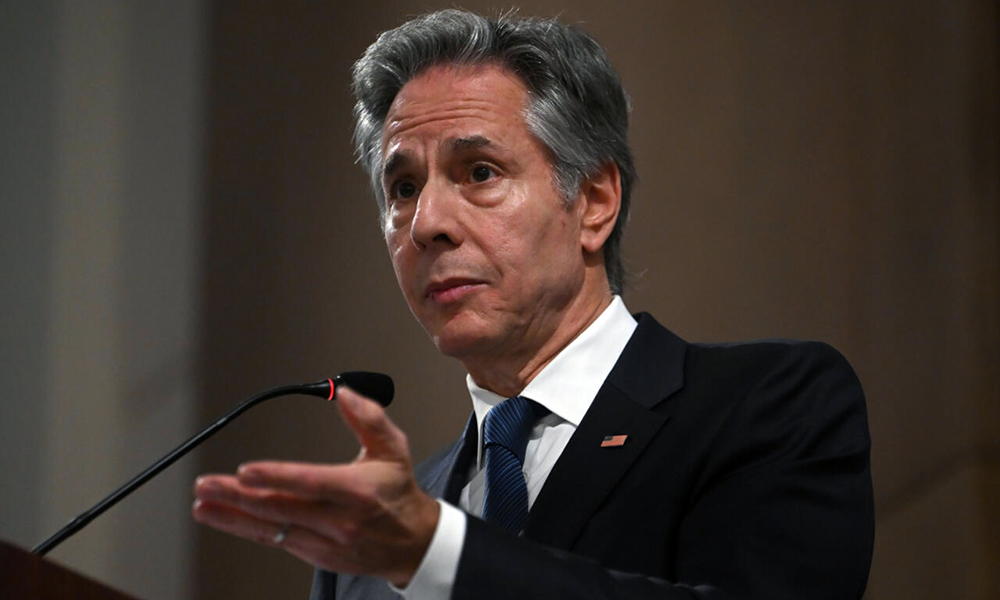
Antony Blinken, the U.S. Secretary of State, has urged Hay’at Tahrir al-Sham (HTS) in Syria to fulfill its promises of forming an inclusive government and learn from the global isolation faced by the Islamic Emirate of Afghanistan (IEA).
Speaking at the Council on Foreign Relations in New York on Wednesday, Blinken called for the establishment of a “non-sectarian” government in Syria that protects minorities and addresses security concerns.
“The Taliban (IEA) presented a more moderate face during their takeover of Afghanistan - or at least tried to - but their true nature later became evident,” he said.
As a result, the IEA remains globally isolated due to their failure to deliver on their commitments, he added.
He went on to state: “If you are an emerging group in Syria and wish to avoid such isolation, you must take specific actions to advance the country.”
Abu Mohammad al-Jolani, the leader of Syria’s HTS, has vowed that Syria will not follow the path of Afghanistan under the IEA.
Jolani has consistently advocated for protecting individual freedoms, ensuring women’s rights, and fostering a pluralistic society.
The Islamic Emirate, however, rejects Blinken's statements and says that Afghanistan is not currently isolated from the world and that they have relations with other countries.
The IEA’s spokesman Zabihullah Mujahid stated that the Islamic Emirate government has fulfilled all its commitments made in Doha.
Meanwhile, a number of Afghan experts believe that the United States is still using political and economic pressure against the Islamic Emirate to achieve its political goals.
Latest News
Two horror accidents on Kabul-Kandahar highway leave 52 dead
The Islamic Emirate has directed the relevant directorate’s to investigate the incidents to determine the exact cause of both accidents
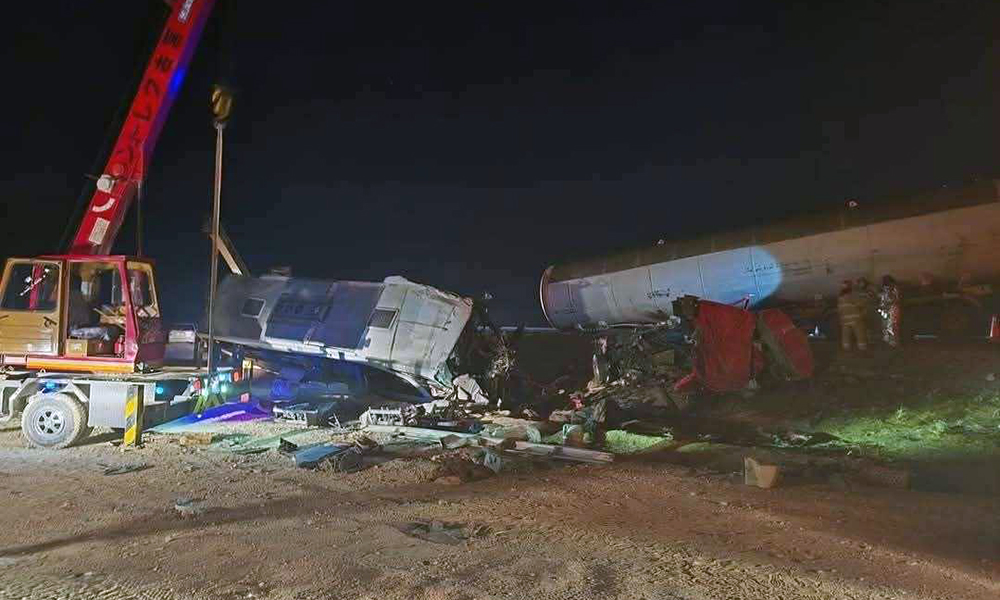
Two late-night traffic accidents in southeastern Afghanistan left at least 52 people dead and more than 65 injured, the Islamic Emirate confirmed early Thursday.
The accidents on Wednesday night happened in Ghazni province. Both accidents involved buses and one involved a fuel tanker.
According to a statement issued by the Islamic Emirate of Afghanistan (IEA) said: "It is with great regret that we learned that two fatal traffic accidents occurred on the Kabul-Kandahar highway, as a result of which 52 of our compatriots were martyred and 65 others were injured."
The Islamic Emirate has directed the relevant directorate’s to investigate the two accidents to determine the exact cause of both.
The Directorate of Information and Culture of Ghazni province meanwhile said in a statement that 47 people had died and 73 others were injured in the accidents.
The directorate stated that the injured had been taken to hospital; some of whom were in a critical condition.
One accident involved a passenger bus and a fuel tanker and the other involved a passenger bus and truck.
-

 Latest News5 days ago
Latest News5 days agoAfghanistan seals T20I series victory over Zimbabwe
-

 International Sports4 days ago
International Sports4 days agoMessi vs Ronaldo: A look at their market values over the years
-

 Regional4 days ago
Regional4 days agoHezbollah chief says group lost its supply route through Syria
-
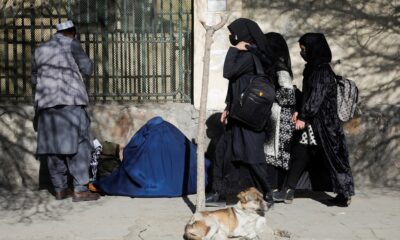
 Latest News4 days ago
Latest News4 days agoInjustices against Afghan women threaten global equality: US
-

 Sport3 days ago
Sport3 days agoATN to broadcast exciting 2025 ICC Champions Trophy live in Afghanistan
-
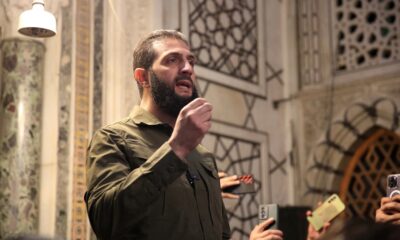
 World4 days ago
World4 days agoSyria’s de facto leader not interested in new conflicts despite Israeli attacks
-
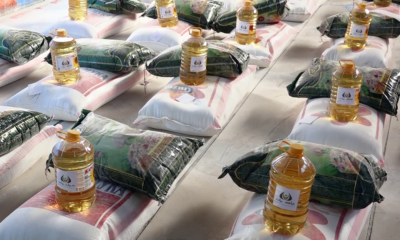
 Latest News4 days ago
Latest News4 days agoBayat Foundation delivers aid to vulnerable families in Kabul west
-

 Sport4 days ago
Sport4 days agoLanka T10: Galle Marvels co-owner arrested on match-fixing charges






